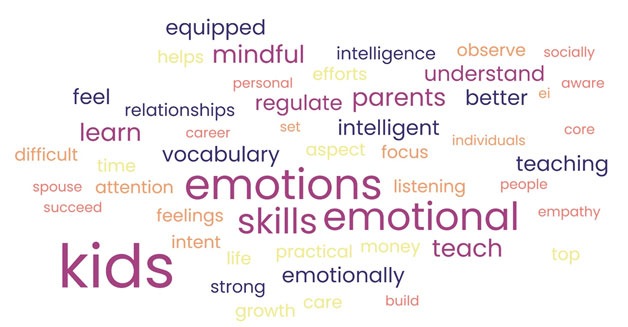
“Look daddy, my teddy got hurt”, my five years old told me while I was getting ready for work.
I told him I would fix it when I get back from work without even looking. Not just that I was getting late for work but also was anxious about the meeting today.
“You’re still not wearing your shoes, and I already told you three times. What if you help us with little things instead of playing”. My wife’s voice came from behind as she was hurrying to get ready.
“But my teddy is hurt” mumbled my son.
“You can play with it when you come back,” said my wife while taking his teddy from his hands.
He stomped his feet in protest but in this chaos we managed to put his shoes on him. He followed us to car but was unusually quiet on his journey to school.
I shrugged it off as my mind was in million places, work meetings, and seemingly endless to do tasks during the commute.
Later that evening, I was drinking coffee and saw his teddy whose arm was ripped open.
In that moment, it hit me that while we were rushing through the day, he was inviting us into his.
To us it did not matter at that time as we were getting late but it meant the world to him. He was sad for his favorite toy, which later turned into frustration or probably disappointment when we did not heed much attention.
Our intentions were not bad at all.
We never meant to disappoint or hurt him but we were not there for him.
To put it in simple words, we were not being mindful parents.
In the world full of endless to do lists, screens, social media and other distractions, most of the parents are guilty of mindless parenting.
Most of us try our best to balance between family and work but still get overwhelmed and lose sight of what is most important.
Often, we forget to see our children for who they really are, and fail to acknowledge them being children.
Mindful parenting helps us to slow down amongst our busy lives, be present and aware, and build deeper connections with our children.
Because in those small everyday moments, that lasting memories and meaningful relations are built.
Mindful parenting can actually bring calm in our chaotic lives and homes. It stops us from being on autopilot parenting and simply being present with our children.
Mindful parenting helps foster deeper emotional bonds with your children as you are fully attentive during your interactions with them.
However, the benefits go beyond just deeper connections.
It helps both parent and child become more aware of their emotions and help them regulate their emotions making them more and more emotionally intelligent beings.
Another big advantage is that it helps in reducing stress and anxiety.
By being more mindful, both parents and children become more aware of their own stress triggers, frustrations and anxiety.
With practice, you will learn to pause before reacting to any situation.
Both parents and children learn patience especially in difficult situations instead of reacting to make things worse.
This alone brings a lot of calmness at home.
Mindful listening is something every individual should practice to be better listener, and improve communication skills.
However, this is particularly important for parents to actually understand their child’s thoughts, feelings, frustrations, and triggers leading to better empathetic communication.
It aids in listening to child’s unspoken needs and emotions.
Many parents find it difficult disciplining their children (and without any doubt it is one of the biggest struggles) and oftentimes quite hard to balance power dynamics as kids grow-up.
Mindful parenting helps in reducing these struggles as focus shifts from forcing discipline to understanding and addressing underlying emotions behind child’s behavior.
Children feel heard, understood and validated which leads to lesser behavioral problems.
Here are some practical tips that you can practice to start with mindful parenting journey:
- First and most important, you as parent have to understand there is no such thing as “perfect parent”.This releases a lot of stress from parenting.Some days could be bad and some days could be great, but embracing mindful parenting will make you strive for best no matter what.So an emotional outburst would just be considered a “not so good” moment to reflect upon and learn.
Important point is not to go by your day on autopilot rather reflect, learn and adapt.
- “Pause and breathe” is a great strategy to be more aware and wait instead of reacting to any undesired situation.When your child messes up big, which triggers impatience and frustration (and believe me you have to practice this, many times a day) take a short pause and breathe deeply (for 4 seconds).This short break will calm you a bit and thoughtful response is more likely instead of reacting impulsively.Simple technique can be to breathe in for 4 seconds, hold in breath for 4 seconds and then exhale for 4 seconds.
- At times we as parents listen to our kids just to respond.Active listening means we listen to our kids to understand them and acknowledge their emotions and needs.This not only helps them feel heard and understood but also improves their communication skills (as listening is fundamental in building your communication skills).
- Put some efforts to enhance their Emotional vocabulary.Being mindful means that you are able to describe your emotional state and feelings, and thus better able to regulate your emotions.
- Practice gratitude, meditation or yoga whatever suits your temperament.Involve your kids with you while meditating, practicing gratitude or doing yoga as per appropriate age.Even just seeing parents practice, would make their kids follow and they will be able to reap benefits from these practices from earlier in their lives.
- Set screen time limits.This is no doubt a difficult task if your child doesn’t have any screen time limits.We personally felt it quite hard especially when we started reducing screen time in the beginning.Mainly, because we made huge mistake of allowing long screen time since the earlier stage of his toddlerhood.
However, keep in mind that it is one of the most important aspect of being a mindful parent.
It is so important that even if you do not do anything else but only limit screen time of your kids as well as your time off from your devices and engage in meaningful activity together, you will see unbelievable results.
- Make a habit of having one meal together as family with no distractions (no electronic device during mealtime for anyone).This will help the whole family to attune to each other’s needs in much better way.
In conclusion, mindful parenting is not about perfection—it is about being present with your child in the everyday moments that shape their lives.
By slowing down, paying attention, and embracing your child’s emotions, you foster deeper connections, and create a calmer, supportive environment at home.
Mindful parenting helps you respond with patience and empathy, reducing stress for both you and your child.
The key is to be intentional — practice active listening, and create space for connection, even in the busiest of days.
These small shifts can transform not only your parenting but also your entire family dynamic, making lasting memories and stronger bonds.




